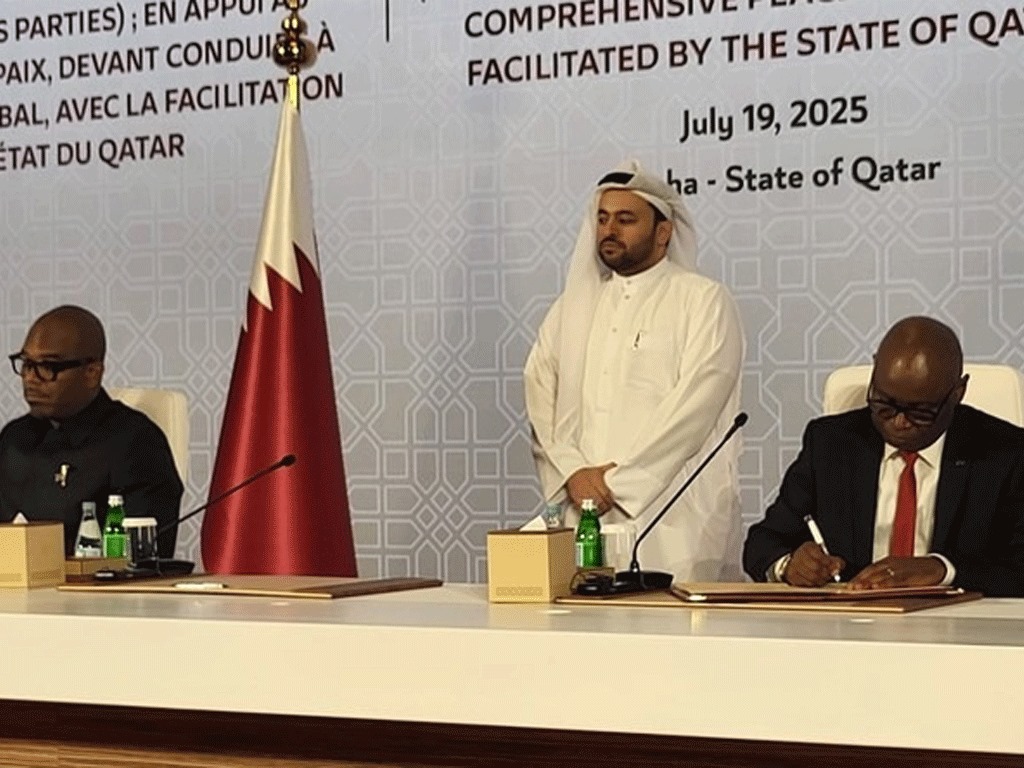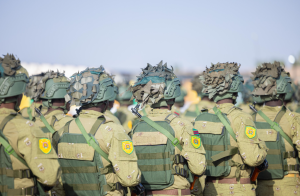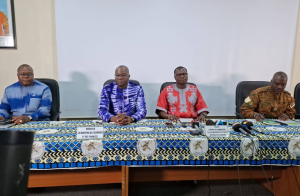DRC-M23 ceasefire agreement signed in Qatar: a step towards peace?

Doha, July 19, 2025 – A new glimmer of hope is emerging for the eastern region of the Democratic Republic of Congo (DRC). On Saturday, the Congolese government and M23 rebels signed a ceasefire agreement in Qatar, titled the “Declaration of Principles”, marking the first direct commitment between the two sides since hostilities resumed earlier this year.
According to the agreement, as reviewed by the BBC, both parties pledge to end attacks, cease all hate propaganda, and renounce any attempt to seize new positions by force. This declaration serves as a roadmap toward a permanent settlement, with initial steps to be implemented by July 29 and a final peace agreement expected on August 18.
The declaration is part of a broader diplomatic framework, including a previous agreement reached in June under U.S. mediation between the DRC and Rwanda. However, Kigali continues to deny allegations from Kinshasa that it supports M23.
Qatar, the host of the negotiations, announced that talks will continue in the coming weeks. The African Union Commission welcomed the initiative, calling the agreement a “milestone” toward lasting peace in the Great Lakes region.
Despite the signing, uncertainties remain. The Congolese government demands the immediate and unconditional withdrawal of M23 from occupied areas, including Goma, Bukavu, and several strategic airports. Yet, in a statement on platform X (formerly Twitter), M23 negotiator Benjamin Mbonimpa claimed the agreement makes no explicit mention of such a withdrawal, suggesting possible future disputes.
Eastern DRC has faced chronic instability for decades, fueled by its vast mineral wealth. The recent M23 offensive has escalated tensions, with the UN reporting thousands of civilian deaths and the displacement of hundreds of thousands—figures disputed by M23.
This new accord joins a long list of failed peace attempts in the region. Ironically, M23 itself emerged from a failed peace process in 2009, which never led to full demobilization.
The U.S. involvement, formalized in June in Washington, has sparked criticism. Some analysts view it as a move driven by American interest in securing access to the DRC’s critical minerals. Former President Donald Trump, still active on the diplomatic front, publicly praised the agreement and hinted at a possible meeting in Washington with Presidents Félix Tshisekedi and Paul Kagame—though no date has been announced yet.






